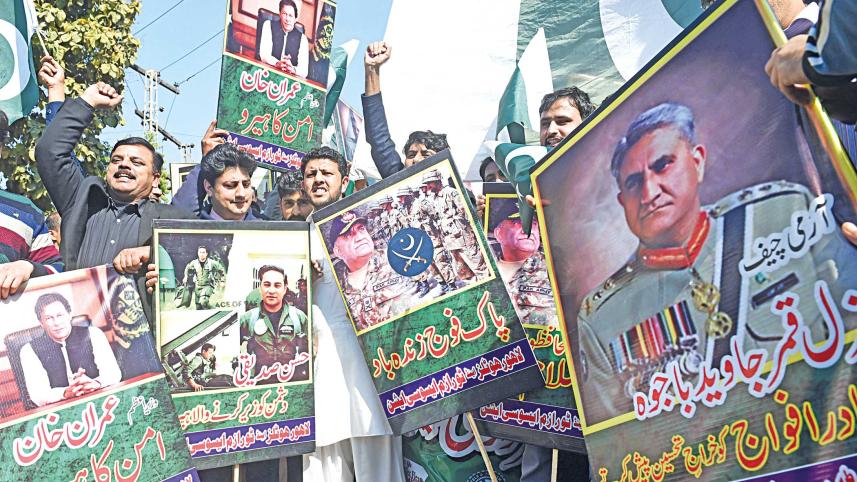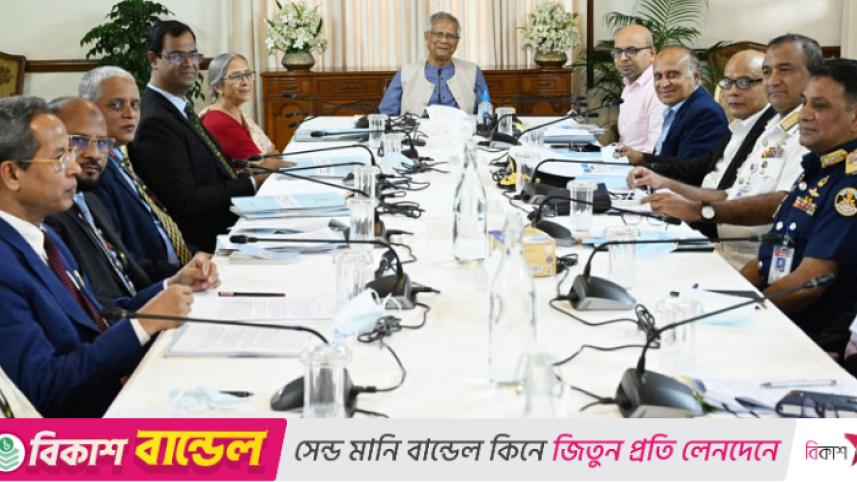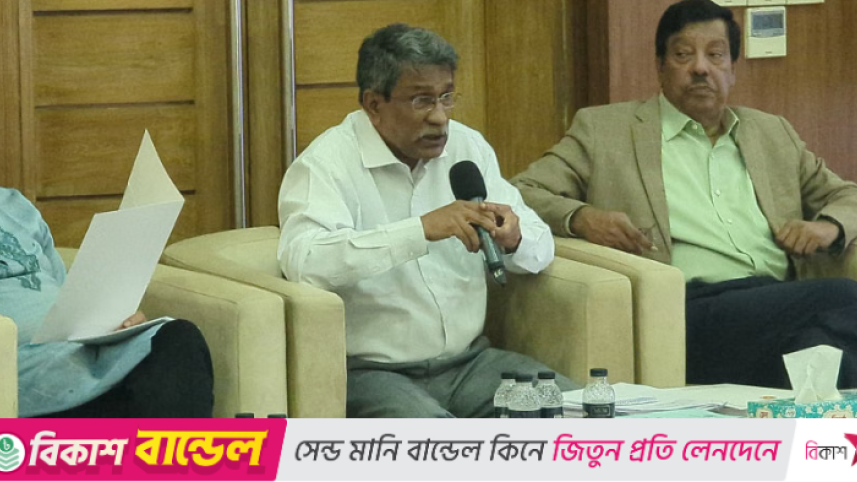Yet another blow, but why?

Yet another Pakistani prime minister has been ousted from power, following weeks of high political drama and days of constitutional chaos.
It's nothing new in Pakistani politics. Imran Khan is the 19th Pakistani prime minister to have failed to complete his term, continuing an unbroken trend since the country's independence in 1947. He is, however, the first prime minister to have been defeated in a parliamentary vote of no confidence.
Despite all the unusual events occurring around Sunday midnight – a parliamentary vote of no confidence, an emergency Supreme Court hearing, boisterous speeches, mysterious helicopter rides, and a clandestine meeting between now-ex prime minister Imran Khan and the military and intelligence chiefs -- nothing fundamentally important shifted in Pakistan.
The transition from Khan's government to the opposition alliance was the result of an intra-elite power struggle, not a people-based mass mobilisation, such as those of the late 1960s, the late 1980s, or most recently, 2007-08. The military went from propping Khan up to declaring its neutrality. The so-called "electables" of parliament switched sides. The opposition suddenly had the numbers and Khan was gone – for now.

But it was all written on the cards. For people interested about Pakistani politics, the events are all too familiar.
Half a century ago, military dictator Ayub Khan brought rising political star Zulfiqar Ali Bhutto under his wing. By the early 1970s, Bhutto was the establishment's choice for balancing "Bangabandhu" Sheikh Mujibur Rahman and Bengali nationalist movement.
But the marriage ended badly: Bhutto was deposed in a coup by General Zia-ul-Haq in 1977 and then sentenced to death under his regime.
Next, in the 1980s, it was Zia's turn, nurturing the rise of Nawaz Sharif, then a young industrialist. By the end of the decade, Sharif was the establishment's choice for countering the "dangerous" Benazir Bhutto.
Sure enough, theirs too was an ugly divorce. Sharif was deposed in a coup by General Pervez Musharraf in 1999 and removed from his third stint in power under military pressure in 2017, spending the intervening years being Pakistan's loudest voice against the military's role in politics.
Which brings us to the present. The military cozied up to Khan, a hugely popular world cup winning cricket captain, beginning in the early 2010s, first using him and his party, Pakistan Tehreek-e-Insaf, to pressure the governments of the Pakistan Peoples Party (PPP) and the Pakistan Muslim League-Nawaz (PML-N) from the street and later, in 2018, helping him to power in an election widely considered rigged.
But seasoned observers knew exactly how this movie would end: in shambles, tears, and recrimination, as it did this weekend.
Whether Khan can rescue his political fortunes or not, only time will tell. But he has dealt one big blow to one of the most significant democratic gains the country achieved.
Khan's dalliance with the military has arguably taken Pakistan back 30 years with respect to its political development.
Back in the 1990's the two major parties, the PML-N and PPP, had each spent the previous decade, the 1990s, acting as the cat's paws for the military every time it tired of the other, operating in the nebulous space between co-conspirator and collaborator.
In 2006, at the apex of Musharraf's power, the heads of the two parties, Sharif and Bhutto, both in exile, signed the Charter of Democracy. The document appeared to mark a fundamental shift. Among other things, the pair pledged to never conspire with the military should it destabilise or replace an elected government.
Many cynics dismissed the signatures as mere theatre. But what followed was a momentous time in Pakistan's political history. The period after Musharraf's removal (2008-2013) saw major gains such as the 18th Amendment, which gave Pakistan's parliament stronger protections against dismissal or dissolution, a significant achievement.
Through an apocalyptic flood, a global recession, and a devastating war against the Taliban, the PPP government handed the reins to the PML-N. It was the first time in Pakistan's history that the National Assembly had completed its tenure. Sixty-five years after its birth as a republic, Pakistan had finally achieved this.

During the PML-N's tenure (2013-2018), the PPP more or less returned the favour, playing the role of loyal opposition. The military was antsy, but without a major party to play ball with, could not get up to its usual tricks.
As such, there was genuine optimism that Pakistan had taken strides towards shedding its history as a military authoritarian state.
But Khan's willingness to partner with the military, something other major parties had foresworn, meant that Pakistan's hard-earned progress on the civilian-military front was squandered.
Observers say the PPP and PML-N have played their own ignominious part in turning back the clock to the 1990s by collaborating with the military. In essence it tore up whatever remained of the dog-eared Charter of Democracy.
Ironically, it is now, out of power that Khan and his PTI can actually strike a blow for democracy and civilian supremacy, should he choose to couch his fight in such terms. But such a hope is too optimistic.
For now, instead of pointing to the powerful military, Khan has found it convenient to blame the US for his fall. However, the relation was going from bad to worse.
In October, simmering civil-military tensions exploded in public view when Khan tried to retain Lieutenant-General Faiz Hameed as the military spy chief, rejecting the nominee of army chief General Qamar Bajwa.
General Bajwa's nominee, Lieutenant-General Nadeem Anjum, was eventually appointed as the new director general of Inter-Services Intelligence, but the weeks-long standoff was bruising and ominous.
While the Pakistani military backed Khan's Moscow trip in February, differences intensified after Khan made a high-stakes domestic pivot. Faced with defeat in the no-confidence vote in parliament, Khan alleged a US-led plot to remove him as punishment for his Russia trip and neutral foreign policy.
The alleged US threat, and Khan's claim that the no-confidence was part of a US-led conspiracy roiled Pakistani politics and civil-military relations.
Political analysts also described a number of differences between Khan and the military leadership that had accumulated over Khan's time in office, including poor political and economic management by Khan that was acting as a drag on the military's public image.
There had been high hopes for Khan when he was elected in 2018 on a promise of sweeping away decades of entrenched corruption and cronyism. He also promised a "new" Pakistan with an independent foreign policy. But, critics say, he, a political novice inept at understanding the complexities of Pakistan politics, failed miserably to deliver.
A deepening economic crisis contributed to dissatisfaction with Khan with double-digit inflation dogging much of his term. But he is not only to blame. He inherited the economic crisis from previous government and Covid pandemic made matters worse.
Defeated inside parliament and undone outside, Khan though is unlikely to be a spent force politically. The cyclical nature of Pakistani politics has seen former prime ministers rebound before.
Khan also has the advantage of clawing his way back to power from a fertile political base. His strong addresses to the nation on independent foreign policy and national dignity have made a stir among his still sizeable supporters base and neutrals. The huge protests across the country after his ouster send a clear message.
Moreover, the perception among the youth on the political elites, Sharifs and Zardaris, are poor. They still see Khan as a better option than them, according to reports from Pakistan's local media.
The next election must be held by late 2023 and in Pakistan's fragmented electorate, the winds of public opinion and the whims of the military leadership could quickly change in Khan's favour.
Nadeem Afzal Chan, a former special assistant to PM Khan who resigned his position and rejoined the opposition PPP in early March, said, "A month ago, people were abusing [Khan and the PTI government] for inflation.
"Now, they say he's stood up for a proud and independent Pakistan."



 For all latest news, follow The Daily Star's Google News channel.
For all latest news, follow The Daily Star's Google News channel.
Comments